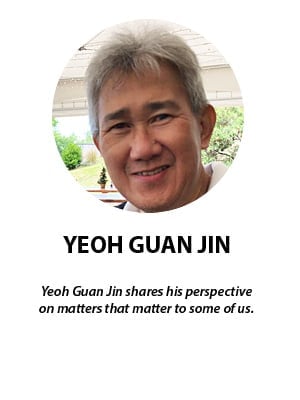
More than half of the world’s population will cast their votes for new leadership in their respective countries this year.
But given how the general population now feels about their place in the scheme of things, it would pay for those seeking power to get to know what sentiments are like on the ground.
For the most part, people are unhappy, at least according to a recent survey by global marketing services outfit Ipsos.
For them, the world has become a gloomier place.
They believe the rich are getting richer at their expense, they hold a poor view of their political leaders and so-called experts whom they say don’t actually understand them.
In practically all categories, Ipsos elicited more negative than positive responses.
The survey covered 20,630 people aged 75 and below living in 28 countries across Africa, North America, Europe and Asia.
Most striking is the loss of confidence in their national leadership among those surveyed.
In fact, more than half of those surveyed feel there is a need for strong leadership to reclaim their country from the rich and powerful.
Topping this category is Thailand, with up to 80% of the people feeling that their country is now in the hands of the elite. This is followed by South Africa at 79% and Indonesia at 77%. Malaysia came in at number four with 76%.
In Thailand, the Shinawatra family continues to hold sway despite not being in power.
In Indonesia, Joko ‘Jokowi’ Widodo had to put a stop to campaigns for him to extend his presidency beyond the two-term limit. Behind this move were powerful families who have benefited most from his term in office.
Of course that did not stop him from having his son Gibran Rakabuming Raka run for vice-president.
In Malaysia, none other than the Yang Di-Pertuan Agong had to issue a warning against the powerful elite to stop the political musical chair from spinning again.
Even in prosperous Singapore, up to 57% harbour the feeling that they are not in control of their fate.
This level of unhappiness comes as no surprise if we take into account the fact that more than half of those surveyed also feel that the economy is rigged in favour of the rich and powerful.
South Africa tops the list here at 80% followed closely by Thailand at 79%. A total of 65% of Malaysians covered in the survey feel the same way.
The survey also shows that 62% of Malaysians believe that traditional parties and politicians don’t care about them.
For instance, a Merdeka Center survey in December last year shows that Anwar Ibrahim’s rating has declined from 65% to 50% a year into his term as prime minister.
This is food for thought for political parties such as PKR, Umno, MCA, DAP, PAS and several others.
A total of 60% of Malaysians surveyed also dismissed the value of experts, arguing that these people do not really understand life the way “people like me” live.
It is therefore no surprise that a vast majority of them want to see the emergence of a strong leader who can reclaim they country from the rich and powerful.
Among the Malaysians covered in the survey, 76% feel this way. The fact that this was 7% higher than last year shows that an increasing number of people are losing faith in the system.
Atticus Poon, head of public affairs at Ipsos Malaysia, pointed out that in the more than 80 countries where elections will be held this year, rising populism and anti-system sentiments will be significant determinants in their choice.
But how far the voter can go in his pursuit of a better system, one that prioritises the needs of the masses over the wants of the rich and powerful, is left to be seen. - FMT
The views expressed are those of the writer and do not necessarily reflect those of MMKtT.


No comments:
Post a Comment
Note: Only a member of this blog may post a comment.